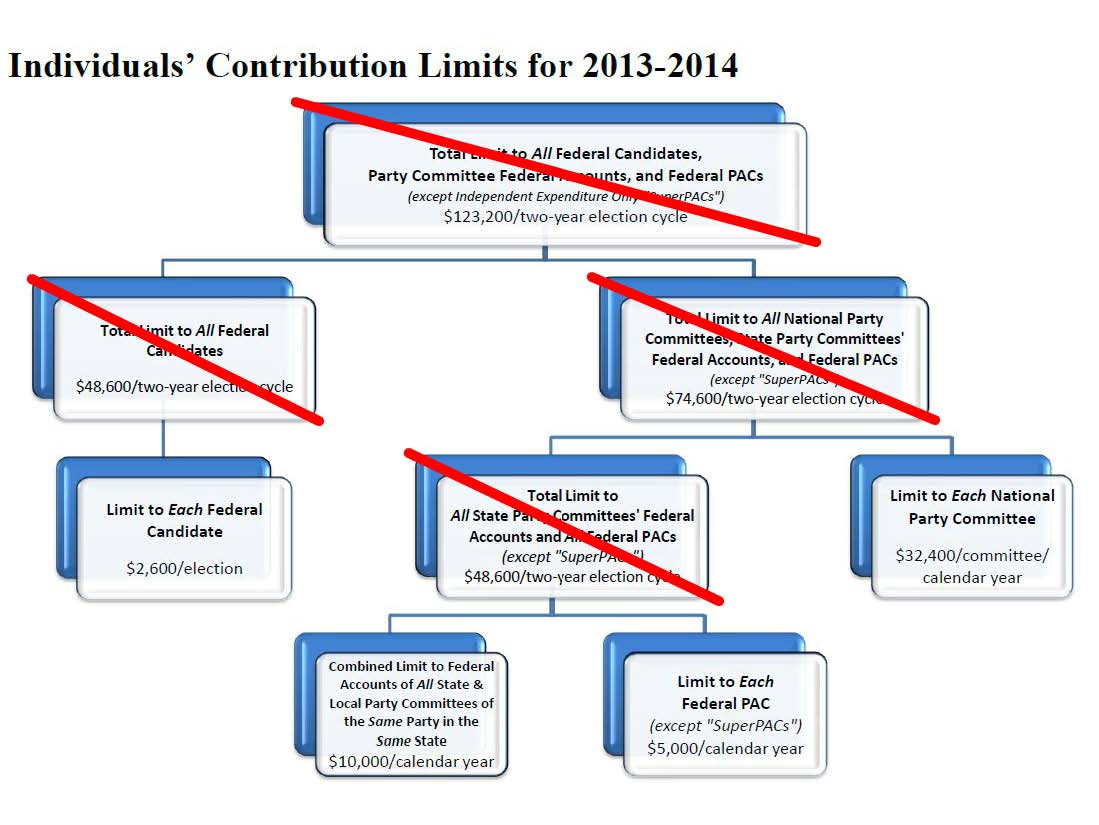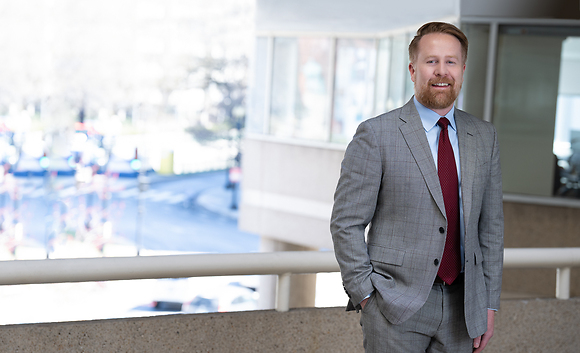U.S. Supreme Court Releases Opinion in McCutcheon v. Federal Election Commission
The U.S. Supreme Court released its long-anticipated opinion in McCutcheon v. Federal Election Commission this morning. Through a 5-4 decision, McCutcheon strikes down aggregate caps in federal campaign finance law that have limited an individual's total contributions to all federal candidates, political parties and PACs combined, and which also acted to limit how much federal candidates and officeholders can solicit from individual donors. Federal law has capped aggregate political contributions since 1974.
However, the decision explicitly leaves in place the limits on how much an individual may give to any one particular federal candidate ($2,600/election), national party committee ($32,400/year), state political party's federal account ($10,000/year), or traditional federal PAC ($5,000/year). After McCutcheon, then, a single individual may contribute to an unlimited number of federal candidates, but may still give only up to $2,600 per election to any specific candidate. (Please see the diagram below for additional information.)
McCutcheon provides major political donors with additional flexibility in distributing their contributions across a wider group of candidates, parties, and PACs. Candidates and party committees also now have the ability to solicit much larger amounts from their supporters through creating new "joint fundraising committees," which are vehicles that collect and distribute contributions on behalf of multiple participating candidate or party committees. We expect that party committees will react to today's Supreme Court decision by moving to create more of these joint committees, which in the past have been primarily used in presidential election campaigns.
In addition, McCutcheon likely impacts various states' aggregate caps that restrict the total amount that can be given to state- and local-level candidates, parties, and committees. Connecticut, Maine, Maryland, Massachusetts, New York, Rhode Island, Wisconsin, and Wyoming are among the states that currently impose aggregate caps. Please note that, as has been the case with limits on funding independent expenditures after Citizens United, particular states may seek to continue enforcing their aggregate limits despite McCutcheon's outcome.
For more information on McCutcheon and its potential implications, please contact the following attorneys in Caplin & Drysdale's Political Law practice group:
| Trevor Potter | Matthew T. Sanderson |
 |
_______________________________________________

For half a century, Caplin & Drysdale has been a leading provider of a full range of tax, tax controversy, and related legal services to companies, organizations, and individuals throughout the United States and around the world. With offices in New York City and Washington, D.C., the firm also provides counseling on matters relating to bankruptcy, creditors' rights, political activity, exempt organizations, complex litigation, employee benefits, private client services, corporate law, and white collar defense. For more information, please visit us at www.caplindrysdale.com.
| Washington, D.C., Office: | New York, NY Office: 600 Lexington Avenue 21st Floor New York, NY 10022 212.379.6000 |
________________________________________________
Disclaimer
This communication does not provide legal advice, nor does it create an attorney-client relationship with you or any other reader. If you require legal guidance in any specific situation, you should engage a qualified lawyer for that purpose. Prior results do not guarantee a similar outcome.
Attorney Advertising
It is possible that under the laws, rules, or regulations of certain jurisdictions, this may be construed as an advertisement or solicitation
© 2014 Caplin & Drysdale, Chartered
All Rights Reserved.

